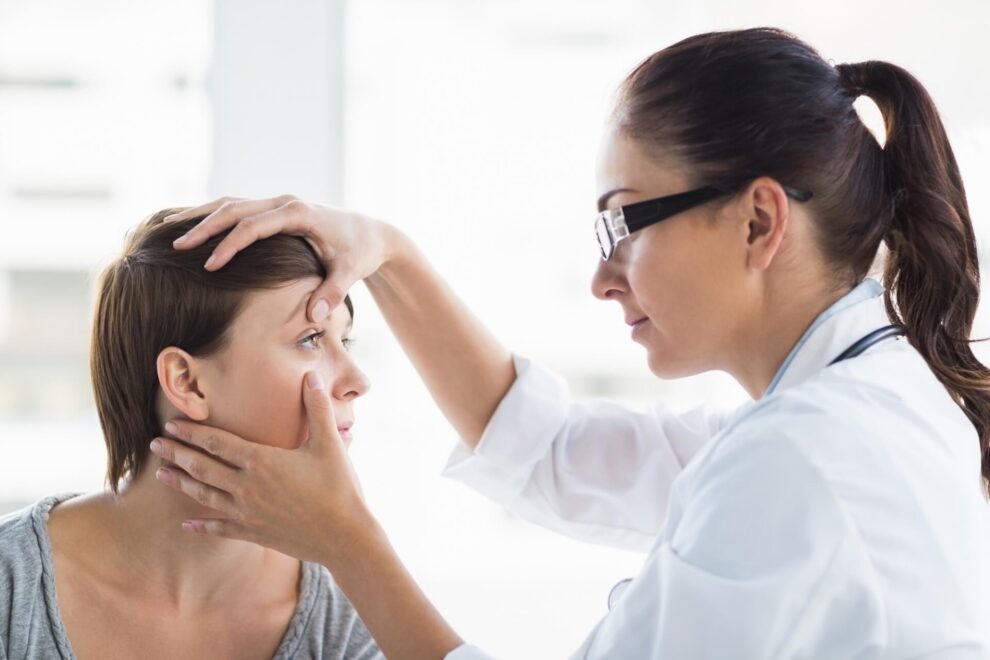Posted by: Kentucky Eye Institute in General Eye Health

Are you experiencing vision changes, eye pain, or headaches? Are you wondering if it’s time to choose an eye doctor in Lexington?
A qualified eye doctor can help you get the right pair of glasses or medication if you aren’t seeing the way you used to. They can also help with conditions like glaucoma or seasonal allergies.
Here’s what you should be looking for when choosing the right doctor for your peepers.
1. The Right Credentials
In order to become an ophthalmologist, individuals need to attend an accredited medical school after obtaining a bachelor’s degree. After completing a Doctor of Optometry program, they should complete a residency in Optometry. In order to be licensed in Kentucky, they must also pass the Kentucky State practical exam.
Altogether, professionals will have had seven to eight years of education before earning their degrees. When you’re searching for an optometrist, make sure you find out about their qualifications. These are usually readily available on their website.
Other ophthalmologists may also be members of additional professional or community organizations, such as the American Academy of Ophthalmology. This demonstrates a commitment to professional development and remaining at the top of their field.
Read your doctor’s bio to find out how they’re staying abreast of all of the latest developments in vision technology.
2. Recommendations
One of the best ways to begin searching for the right eye doctor is to ask trusted friends and family members to recommend an eye doctor whose services they were pleased with. Don’t be afraid to ask questions.
Was the doctor kind and patient? Were they able to quickly diagnose and treat the problem? Were there any unexpected fees?
If your employer’s health insurance covers visits to an ophthalmologist, ask your colleagues to recommend someone on your plan.
If you can’t get any personal recommendations, call up prospective practices, and ask them for at least three references of former patients that you can speak to about their experience.
3. Takes Your Insurance
Many routine eye exams aren’t fully covered under most health insurance plans. Your plan may, however, cover at least some of the cost. Your policy may also offer separate vision plans that could include glasses coverage or discounts on your eye doctor visits.
Ask your insurance company’s representative about how much of your vision visits they’ll cover. You may need to look for someone within your network so you can be at least partially reimbursed.
If your health insurance plan offers a Health Savings Account (HSA) as part of your coverage, you’ll be able to put aside tax-sheltered money each month that can be used to pay for your vision visits and glasses. The money can also get rolled over from year to year if you don’t use it.
If your employer doesn’t have HSA’s available, ask them about a Flexible Spending Account (FSA.) Like an FSA, an HSA will allow you to keep more of your income by putting money aside to use for medical care each month. The main difference, however, is that an HSA is owned by you and an FSA is owned by your employer.
4. Online Reviews
Look for a local vision practice when you’re searching online, as chances are you’ll be returning to them several times if you’re happy with your doctor. You can then read online reviews and see what former patients are saying.
Look for patterns that repeat with different patients, as these are giving you a good idea of what your experience will be like. You may, for example, notice that many patients talk about the friendly, communicative staff. Others may remark on the expertise of the doctors.
A careful reading of online reviews can help give you confidence that you’re making a good decision.
5. Safety Measures
In the days of COVID-19, it’s important to know that any doctors you’ll be visiting are taking appropriate safety precautions. Some practices may require masks at all times, or clean all equipment between patients. They may maintain social distancing in waiting rooms or require temperature checks upon arrival.
You may also want to ask about telemedicine capabilities in case you can’t visit them in the office for any reason. The best optometry professionals will be able to meet with you virtually and answer all of your questions.
6. The Right Specialist
Your ophthalmologist may recommend a specialist depending upon your eye condition.
You may, for example, want to look for a retina specialist, who has expert knowledge in the tissue lining the back of the eyeball. They may be able to diagnose and treat retinal eye conditions. You may also get referred to a cornea specialist, who can treat conditions specific to the clear outer layer of your eye.
Glaucoma specialists deal with the buildup of fluid in the eye that puts pressure on your optic nerve. And neurology specialists deal with problems specific to how your eyes relate to your brain.
If your eye doctor refers you to a specialist, you can be certain that you’ll get care specific to your eye’s needs. A trained professional can diagnose your problem and have you getting treated properly in no time.
Quality Eye Care in Lexington
If you’re having trouble with your vision or eye discomfort, a qualified Lexington ophthalmologist can help you get the care you need. With a little research and care, you could find the right doctor for you in no time. And you’ll be seeing and feeling your best for years to come.
Don’t stop improving your eye health now. For more information on qualified eye care in the Lexington area, contact us today.
